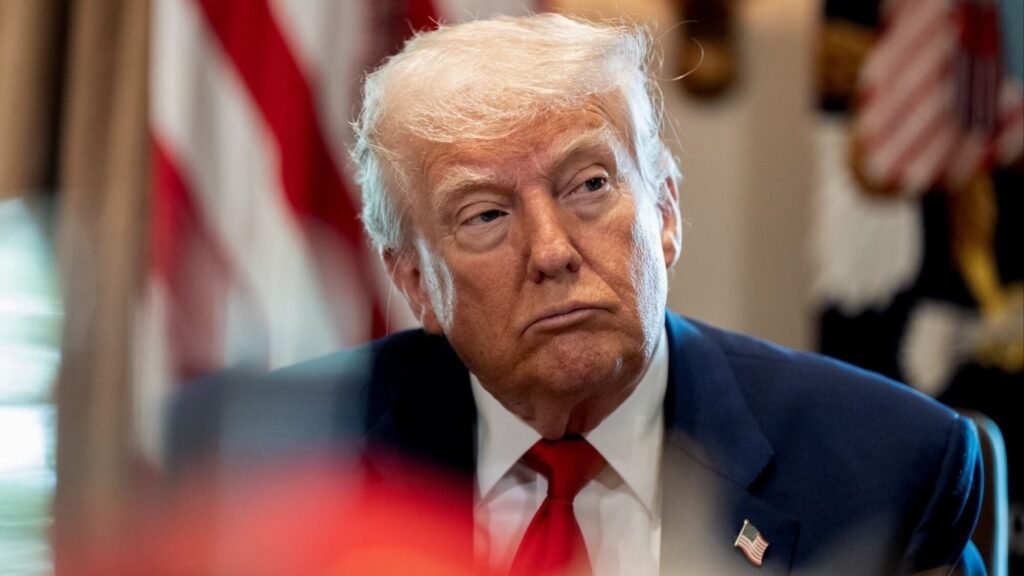It’s an ill wind that blows nobody any good, and Donald Trump’s tariffs are bound to be good for somebody.
Might this be the change in the weather that investment trusts have been looking for?
Trusts have been battling two major headwinds: higher interest rates, and the concentration of returns in the magnificent seven tech stocks.
Already, since the ludicrously named “Liberation Day” on April 2, we’ve seen interest rate-sensitive sectors such as property and infrastructure do well.
UK commercial property is up 4 per cent, renewable energy infrastructure up 3 per cent, and the main infrastructure sector up 2 per cent.
That’s compared to a 6 per cent loss in the North America sector (at the time of writing, April 30).
Lower rates could provide the catalyst for investment trust buyers to start looking at higher yielding sectors again.
Yields on the two infrastructure sectors hit all-time highs in mid-April.
As for the magnificent seven, their pre-eminence has been a headwind for investment trusts as it has for most actively managed vehicles.
What’s the point in an active manager when all the returns are coming from the biggest companies in the index? What’s the point of diversification?
Smaller company outperformance is one of the more reliable historical trends in investing
The investment trust sector is nothing if not diversified.
Only a tiny handful of trusts can match the exposure to the magnificent seven that would be offered by a simple global tracker.
About 40 per cent of trusts invest in alternative assets, and of the 60 per cent that invest in equities, there is a tilt towards the UK, Europe, Asia, emerging markets, smaller companies – all the areas that have been left in the dust by the relentless march of Apple, Amazon et al.
This has been reflected by the wide discounts to NAV at which many investment trusts have been trading.
But since Liberation Day, discounts in 26 out of 36 AIC sectors have actually narrowed.
A great rotation, a broadening rally, maybe both?
We’re already reading reports of investors pulling money out of the US and putting it into Europe, including the UK.
Investment trusts, both directly and indirectly, could be beneficiaries.
Another trend that could benefit trusts in a big way is a return to form for smaller companies.

‘Investment trusts’ long history show we must be doing something right’
These have been out of favour for so long it’s been possible to forget the old saw that elephants don’t gallop.
Smaller companies haven’t been doing much galloping lately, with the AIC Global Smaller Companies sector returning just 25 per cent over the past five years versus the Global sector’s 56 per cent, and a similar trend in the UK sectors. It’s been a good time to be an elephant.
If this were to reverse, it would only be a return to the status quo: smaller company outperformance is one of the more reliable historical trends in investing.
Falling interest rates, US deregulation and a retreat in globalisation (which was happening even before Trump’s first term) could create good conditions for a resurgence of the cheetahs of the investment world.
It’s interesting that Japanese Smaller Companies has been the second-best performing AIC sector since Liberation Day (after Private Equity).
Barriers to global trade are a bad thing
Inevitably, any discussion of the impact of Trump’s tariffs comes up against the elephant-sized problem of their uncertainty.
We still don’t know exactly what they will be, when they will be imposed, and to what extent they may be mitigated by any deals.
The uncertainty may have been part of the plan all along, or it may be a sign of chaos inside the Trump administration.
What is certain though, is that the uncertainty itself – quite apart from the hard impact of any actual tariffs – is already damaging confidence.
This is, of course, nothing to celebrate.
Barriers to global trade are a bad thing.
But a check in the magnificent seven’s march to global domination may have a silver lining if it entices investors to look at some of the other exciting opportunities in the investment universe they may have been overlooking.
Nick Britton is research director at the Association of Investment Companies

